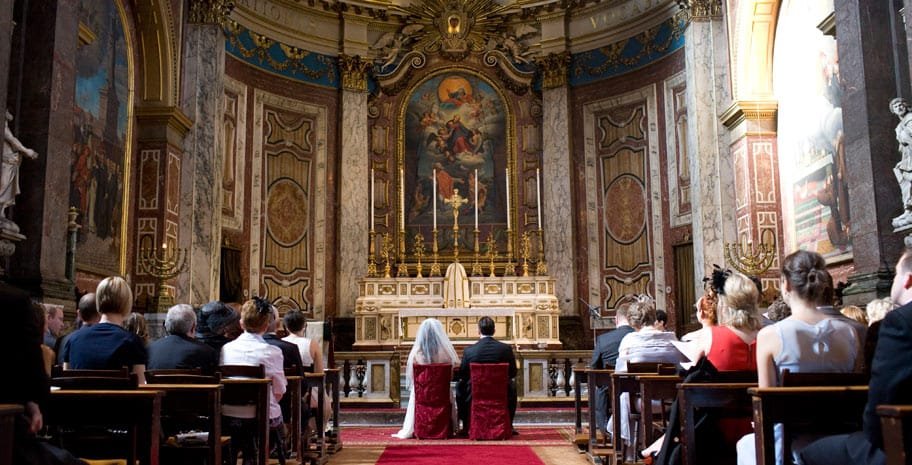Marriage is supposed to be a heroic challenge not a ticket to eternal happiness | Thomas Blunt
I recently managed to get married abroad, despite the best efforts of the British government to put a stop to it with its response to Covid. Much of my family and friends couldn’t be there, but it was still a joyous celebration. Almost straight away after marrying, I had to move cities for work and my wife, unfortunately, will not move with me for some time. I think it’s fair to say that I have had a somewhat unorthodox beginning to married life, on top of a rather unique wedding day experience.
Nevertheless, I am not bitter about the circumstance which now faces us as newlyweds, rather the opposite. I’m extremely grateful that my marriage was not delayed further and the difficulties we have faced have only quickened the deepening of my appreciation for the marriage bond.
After all, marriage is supposed to be difficult. The modern-day ideal of marriage is, rather tragically, the opposite. We moderns have come to expect that marriage is the pill that will bring us everlasting fairy-tale happiness; women will ride off into the sunset with their prince charming and live happily ever after. If this doesn’t turn out to be the case, which it never will because it’s an unrealistic expectation, we have decided that our ‘happiness’ as individuals is what is paramount and we should be able to renounce our wedding vows almost as quickly as we made them.
As soon as things become difficult, or as soon as someone else comes along whom we are attracted to, legally at least, we can jettison the bond that we forged and find pastures new, regardless of the moral, emotional and psychological consequences to ourselves, our partner and the wider community that we are a part of. What is important in modern society is the self and the ability of the individual to make self-oriented decisions. The ideas that you would work at a marriage or aim to forego your base desires in the interest of not harming your partner psychologically are now seen to be folly because they deny the authenticity of the individual as an animalistic and desire-driven human. People should be ‘free’ to be ‘who they are’.
In this rather belittling view of human nature, the idea of overcoming your faults through temperance and aiming at a superior future, for the betterment of others around you, is heavily derided as some form of oppression. It is viewed as tyrannical to want people to achieve their potential and become truly well-developed and virtuous adults; people who genuinely care about others and try to contribute effectively to the social fabric. Instead, selfishness is promoted as the aim of the game and well… the problem is that marriage isn’t about you or I, not solely at least.
One who enters marriage should do so because they love the other person, so much so that they are willing to make voluntary sacrifices to their personal freedoms; without doing so they would not be able to cooperate and form a genuine bond with the other. By foregoing their desires for the sake of the relationship, they can build the conditions in which they can elevate their relationship with their spouse above a level playing field with anybody else or any other choice they could make and so attain the phenomenon of love, which is a higher state than the everyday and the humdrum.
By differentiating your spouse from others, you make them sacred and if you both do this in a relationship, you can enjoy the fruits of a delicate, yet beautiful, experience. But of course, this requires enormous self-sacrifice and a desire to attain a higher goal that is above endlessly satiating your self-interested everyday desires. It is therefore difficult and it calls on you to aim for love of the other, even in times when you do not wish to do so. For better or worse, for richer or poorer, in sickness and in health… And so, in a Britain that is running out of steam, in which people have given up on the idea of achieving a higher state of being, it is no real surprise that marriage rates are declining, divorce has been normalised and the call to the heroic challenge goes unanswered.
Thomas Blunt graduated from Birkbeck in 2019 with an MA in History and Politics and he recently decided to quit his job in International Development and retrain as a steel cladder/roofer. Find him on Twitter https://twitter.com/TCJBlunt
If you liked this article and want to help our organisation expand, please consider donating.

